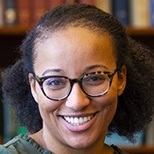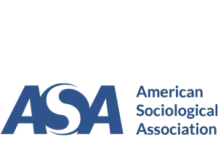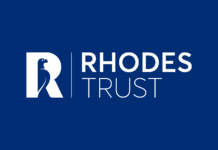 A new report from the Stanford Center for Educational Policy Analysis explores the association between Black students’ college enrollment and the number of reports of hate crimes in the state in which the college or university is located and at the particular educational institution.
A new report from the Stanford Center for Educational Policy Analysis explores the association between Black students’ college enrollment and the number of reports of hate crimes in the state in which the college or university is located and at the particular educational institution.
The researchers examined a comprehensive dataset of institutional enrollment and characteristics, reported hate crimes, and Census data on state racial demographics from 1999 to 2017. They found that an increase in reports of state-level hate crimes predicted a 20 percent increase in Black first-time student enrollment at HBCUs. The authors note that “when examining institution-level reports of hate crimes, an increase in reports of race-based crimes predicts an increase in overall enrollment at HBCUs. It could be that reports of hate crimes at the state level are more salient to students as they make college enrollment decisions, while reports of hate crimes on individual college campuses hold less weight.”
This may be due to the fact that reports of hate crimes in general society are more widely reported in the press than individual hate crimes on a particular college campus.
The authors conclude that “it is important to understand the ways in which an increase in macro-level intolerance and oppression is related to institutional enrollment decisions as a first step to higher education institutions working to actively create welcoming campus environments where all students can thrive while feeling safe.”
 The report was co-authored by Dominique J. Baker, an assistant professor of education policy at Southern Methodist University in Dallas. Dr. Baker joined the faculty at SMU in 2016. She holds a bachelor’s degree in psychology and a master’s degree in education from the University of Virginia. Dr. Baker earned a Ph.D. in higher education leadership and policy at Vanderbilt University in Nashville.
The report was co-authored by Dominique J. Baker, an assistant professor of education policy at Southern Methodist University in Dallas. Dr. Baker joined the faculty at SMU in 2016. She holds a bachelor’s degree in psychology and a master’s degree in education from the University of Virginia. Dr. Baker earned a Ph.D. in higher education leadership and policy at Vanderbilt University in Nashville.
 The other co-author is Tolani L. Britton, an assistant professor of education at the University of California, Berkeley. She joined the faculty at Berkeley in 2018. Dr. Britton holds bachelor’s and master’s degrees in economics from Tufts University in Medford, Massachusetts. She earned master’s degrees in French cultural studies from Columbia University and in secondary mathematics education from the City Univerity of New York. Dr. Britton earned a doctorate in quantitative policy analysis of education from Harvard Univerity.
The other co-author is Tolani L. Britton, an assistant professor of education at the University of California, Berkeley. She joined the faculty at Berkeley in 2018. Dr. Britton holds bachelor’s and master’s degrees in economics from Tufts University in Medford, Massachusetts. She earned master’s degrees in French cultural studies from Columbia University and in secondary mathematics education from the City Univerity of New York. Dr. Britton earned a doctorate in quantitative policy analysis of education from Harvard Univerity.












Let’s be honest for a moment Dominique and Tolani. The increase of so-called Black American students enrollment at HBCUs has been by Default and not a sudden increase in appreciation and respect for HBCUs. I would venture in saying if the intensity level of explicit White racism was minimally equivalent to that of the Obama Administration, these same students wouln’t even consider in matricualting at an HBCU. In fact, these same so-called Black American students intrinsically place more value of HWCUs as compared to the HBCUs they currently attend.
I can see how this would be the case. Many Black students would gravitate toward HBCUs as they would provide protective environments for them. I appreciate this solid research.
Your comment is not completely accurate because many HBCUs are mired in colorism, sexism, ‘groupism’ and maintainers of the proverbial status quo along with not being able to properly protect its students on/near their campuses. Therefore, HBCUs are not as “protective” as you’re asserting.
It’s better than going to the enemies college.
I’ll take a black college over a white one anytime.